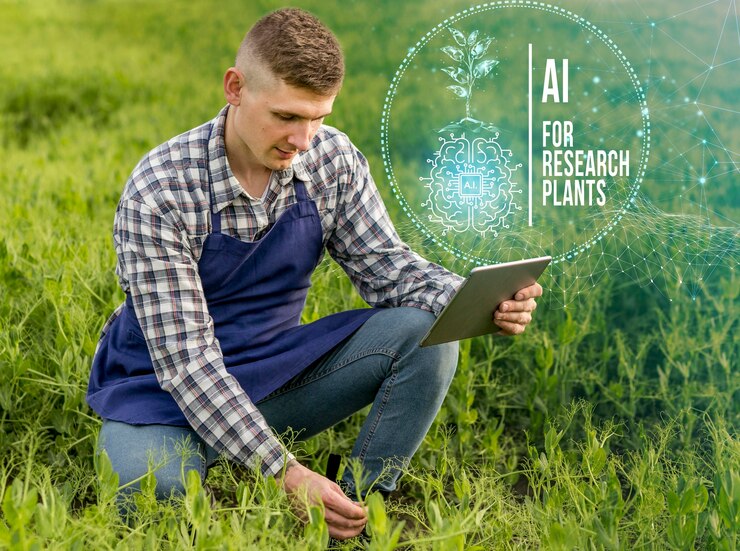Artificial Intelligence (AI) is transforming agriculture across the globe, and South Africa is no exception. As farmers face challenges such as climate change, water shortages, labor constraints, and fluctuating market prices, AI-powered solutions are providing smarter, more efficient ways to boost productivity and sustainability. But what exactly is AI in farming, and how can South African farmers take advantage of it?
What is AI-Powered Farming?
AI-powered farming refers to the use of artificial intelligence, machine learning, and automation to improve agricultural processes. By analyzing large amounts of data from sensors, drones, satellites, and historical records, AI helps farmers make better decisions regarding planting, irrigation, pest control, and harvesting.
Key AI Technologies in South African Farming
- Precision Agriculture
AI-driven systems analyze real-time data to help farmers optimize the use of water, fertilizers, and pesticides. Sensors in the soil track moisture and nutrient levels, while drones and satellite imagery provide detailed insights into crop health. This leads to higher yields with fewer resources. - Smart Irrigation Systems
Water scarcity is a major concern in South Africa, but AI-powered irrigation systems can help. These systems use weather forecasts, soil sensors, and machine learning algorithms to adjust water distribution automatically, ensuring crops receive the right amount of water without waste. - AI for Pest and Disease Detection
AI-powered cameras and mobile applications can scan plants and identify diseases or pest infestations before they spread. Early detection helps farmers take quick action, reducing the need for excessive pesticide use and preventing large-scale crop damage. - Autonomous Farming Equipment
AI-driven machinery such as self-driving tractors, robotic harvesters, and automated sprayers are revolutionizing farm work. These machines reduce labor costs, improve efficiency, and allow for precision in seeding, weeding, and harvesting. - Market and Weather Predictions
AI-powered analytics help farmers predict weather patterns and market trends. By analyzing historical and real-time data, AI systems can suggest the best times to plant, harvest, and sell produce to maximize profits.
Benefits of AI in Agriculture
- Increased Yields: AI helps optimize resource use and improve crop health, leading to better harvests.
- Cost Savings: Smart farming reduces waste, lowers input costs, and improves efficiency.
- Environmental Sustainability: AI-driven precision farming minimizes chemical use and conserves water.
- Reduced Labor Challenges: Automated systems reduce the reliance on human labor, especially in rural areas where labor shortages are common.
- Data-Driven Decision Making: AI provides actionable insights that help farmers make informed choices.
Challenges and the Future of AI in South African Farming
While AI offers many advantages, its adoption in South Africa faces challenges such as high costs, lack of digital literacy among small-scale farmers, and limited internet access in rural areas. However, with government support, agritech startups, and financial incentives, AI is becoming more accessible.
The future of South African agriculture lies in smart, AI-driven solutions. As more farmers embrace these technologies, they will be better equipped to tackle challenges, improve productivity, and contribute to food security. By staying informed and open to innovation, South African farmers can ensure a more efficient and sustainable future for agriculture.
Join 'Farmers Mag' WhatsApp Channel
Get the latest Farming news and tips delivered straight to your WhatsApp
CLICK HERE TO JOIN






